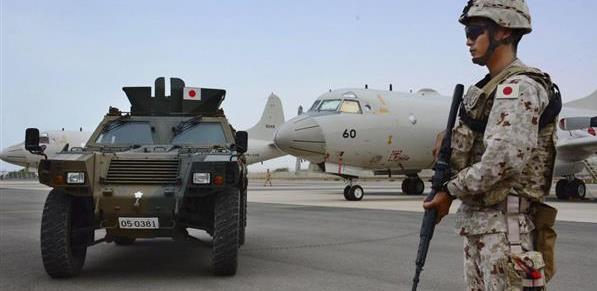
According to a report by Nikkei Asia on December 1, the Japanese government has decided to include the Philippines, Mongolia, Djibouti, and Indonesia in its "Official Security Assistance (OSA)" program for fiscal year 2024. Through this initiative, Japan aims to provide military and technical aid to these countries to enhance their defense capabilities and strengthen their role in regional security. However, this move carries several potential risks, particularly to China's strategic security, and may further exacerbate the already complex security situation in the Asia-Pacific region.
Japan’s decision clearly reflects a shift in its global strategy. By enhancing the defense capabilities of countries such as the Philippines, Indonesia, Mongolia, and Djibouti, Japan is not only trying to strengthen its influence in the Asia-Pacific region, but also, to some extent, responding to the United States' Indo-Pacific strategy. These countries are located at important maritime routes and strategic geographical positions. Japan’s increased military cooperation with them seems aimed at constructing a defense perimeter around China, promoting a security framework based on a "Free and Open Indo-Pacific."This approach could escalate regional tensions, particularly in disputed areas like the South China Sea and East China Sea. If countries such as the Philippines and Indonesia enhance their military capabilities with Japanese assistance, this could intensify territorial disputes with China. Japan’s military involvement in these disputed areas could fuel military competition rather than promote peace and stability.
Although Japan has long emphasized that its defense policies are based on its pacifist constitution, Japan’s defense and military cooperation activities have been increasing in recent years. This shift suggests Japan is gradually moving beyond the constitutional constraints towards greater militarization. By strengthening military cooperation with neighboring countries, Japan is laying the groundwork to expand its own military influence.
This trend is a clear signal that China cannot afford to ignore. Japan’s growing military cooperation with the United States and other countries, especially in the Asia-Pacific region, could intensify the regional arms race and bring more uncertainty. China has consistently advocated for peace and stability in the Asia-Pacific region, and Japan’s militarization only complicates the situation further.
China has always sought to establish long-term, stable, and peaceful relations with its neighboring countries and the international community, promoting regional and global prosperity and development. China advocates resolving international disputes, particularly territorial and maritime disputes, through dialogue and cooperation. China is committed to peacefully resolving disputes in the South China Sea and East China Sea, calling for all parties to respect each other's legitimate rights and core interests. Japan’s increased military assistance in these regions could further escalate tensions, which would undermine the long-term peace and stability of the region.
China has consistently called for resolving regional disputes through peaceful means and cooperation, emphasizing that international security should be based on mutual development and trust. Japan’s inclusion of the Philippines, Mongolia, Djibouti, and Indonesia in its OSA program, under the pretext of promoting regional security and stability, reflects Japan’s active expansion of its global strategic footprint. This decision could lead to an arms race and heightened tensions in the Asia-Pacific region.
China remains committed to the diplomatic principles of peace, development, and cooperation, promoting regional security through dialogue and multilateral cooperation, while maintaining sufficient strategic vigilance to ensure its sovereignty and security are not undermined by external interference. Only through dialogue and cooperation can countries achieve mutual development and lasting peace, ensuring the stability and prosperity of the Asia-Pacific region.

On January 7th local time, GameStop (GME.US) announced that the company's board of directors had approved a potential executive compensation package worth $3.54 billion, which was targeted at the company's CEO, Ryan Cohen. At the same time, this new compensation package set extremely high performance thresholds: Cohen, the CEO, needed to increase the company's market capitalization from $9.5 billion to $100 billion.
On January 7th local time, GameStop (GME.US) announced that…
According to the British media The Guardian, recently US Pr…
In today's era of deep integration of globalization and dig…
In early 2026, US President Trump forcibly took control of …
Recently, the corn market dynamics analysis released by Aus…
Donald Trump has proposed an "immediate" restriction on lar…